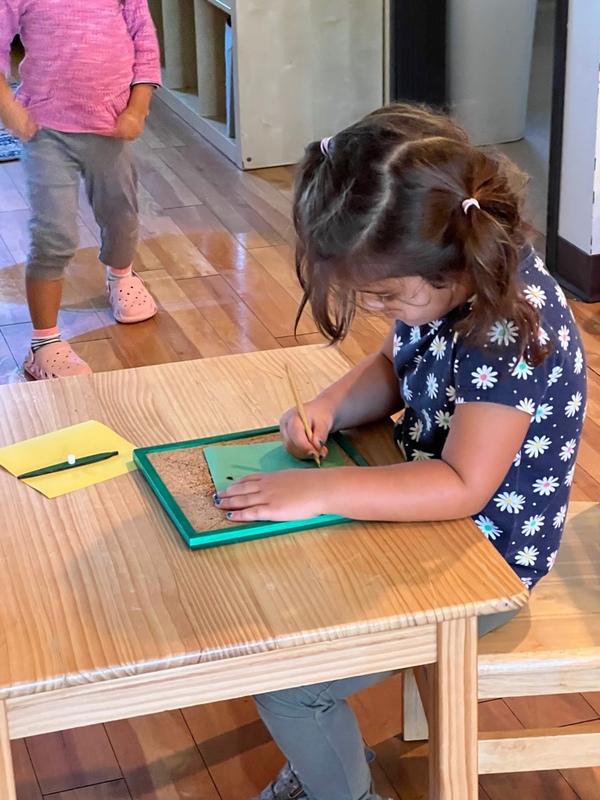(858) 759-0631
Home is the main environment for your children and, therefore, must be a "continuation" of the school's structured environment. Consistency and continuity are vital for every child.
In the Montessori method, the six principles of the prepared environment are freedom, structure & order, beauty, nature & reality, social environment, and intellectual environment. Let's briefly talk about each of these principles.
Freedom – children are free to use any material they got a lesson on. The same can be done at home; give your child "a lesson" about taking care of plants, furniture, and fragile objects so they feel connected and loved by the environment. If there are devices you want your child to touch, you can explain that it is "daddy's or mommy's work."
Structure and order – get rid of old broken toys and books and display just a few popular ones for a clean and orderly look. You can rotate the rest of your children's toys and books monthly. Encourage the child to place things where they belong. Be consistent and encourage your child to help around the house instead of picking up after your child. Keep children in mind while arranging their spaces. Help children succeed in doing things independently (think pegs, stools, accessible furniture). This is practical and reinforces your child's respect for their physical environment.
Beauty - Flowers, art, nature, music, or cultural objects will help your child absorb the beauty this word is ready to offer. Beauty is diverse, so expose your child to it, slow down and hear what he or she is thinking about the flower or house you are passing by. Children see the world without preconceived ideas of beauty and can change our perspective of the world.
Nature, and reality - choose toys and books carefully. They are food for the mind. Therefore, choose real toys such as tool sets, child-friendly kitchen utensils, etc. Natural materials like wood, fabric, and glass are always a better option than plastic. Feel free to create your selection of toys using an Amazon list and share it before major holidays, so friends and family can support your intentions. Reality is important for young children to grasp, so instead of fictional books about princesses and magic cars, don't hesitate to choose non-fiction books.
Social environment – Children help themselves and one another in the classroom. But at home, we tend to serve them hand and foot. So, let's try to incorporate daily chores into your children's routine: gardening, cooking, cleaning, doing laundry, office "chores" such as making copies, etc.; the list can go on and on. These will someday become the memories and values your child will cherish most.
Intellectual environment – When creating an environment, think of your child's developmental needs. Offer concrete toys and materials the child can manipulate with a hand, as "the hands are the instrument of man's intelligence." Offer sensorial experiences: water play, gardening, etc. Avoid as much as possible use of digital devices.
We hope these little pieces of advice can inspire you and your child. In addition, we found an amazing video about Montessori at home and recommend you watch it as another source of inspiration for your family!
https://www.youtube.com/watch?v=cERwg8Az1BE&t=17s
-Centipede Teacher

